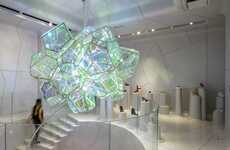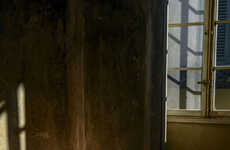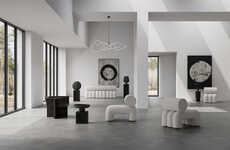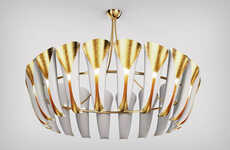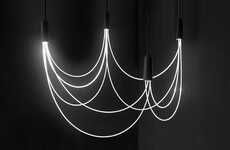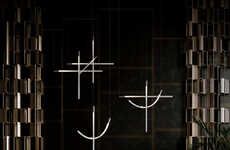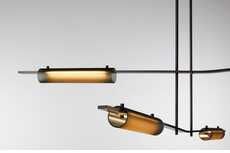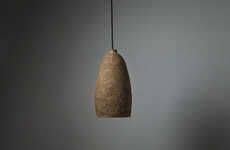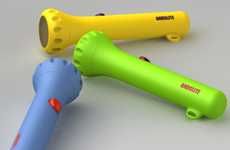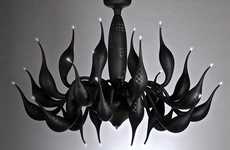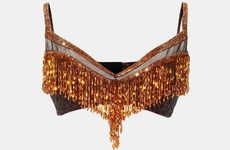
The Hope Chandelier is Made of Polycarbonate Sheets
Katherinev123 — January 29, 2012 — Art & Design
One look at the Hope chandelier designed by artists Francisco Gomez Paz and Paolo Rizzatto, and you'd be hard-pressed to think that this astoundingly beautiful light piece was made from something other than glass. But oh, it is. The two designers have reinterpreted the classic chandelier through the use of polycarbonate sheets that mimic the look of glass.
While traditional fixtures like this were made from handblown glass and crystals, the Hope chandelier was made by manipulating polycarbonate sheets in such a way so as to emit the optical qualities of solid glass, describes the designers. They refer to the resulting sheets as "meta-crystal," due to their ability to capture and refract light. The designers further combined the meta-crystals together using stems, arranging them to ensure the best diffusion of light possible.
While traditional fixtures like this were made from handblown glass and crystals, the Hope chandelier was made by manipulating polycarbonate sheets in such a way so as to emit the optical qualities of solid glass, describes the designers. They refer to the resulting sheets as "meta-crystal," due to their ability to capture and refract light. The designers further combined the meta-crystals together using stems, arranging them to ensure the best diffusion of light possible.
Trend Themes
1. Polycarbonate Chandeliers - Opportunity for disruption in the lighting industry using polycarbonate sheets to replicate the look of glass.
2. Meta-crystal Sheets - Potential for innovative designs using meta-crystal sheets that capture and refract light.
3. Optical Qualities of Non-glass Materials - Possibility for the development of non-glass materials that have optical qualities similar to glass for use in various industries.
Industry Implications
1. Lighting - Disruptive innovation opportunities using polycarbonate sheets to create unique lighting fixtures.
2. Home Decor - Development of meta-crystal sheets opens up possibilities for innovative home decor products.
3. Architecture - Advancements in non-glass materials with optical qualities can influence the use of materials in architecture and construction industries.
2
Score
Popularity
Activity
Freshness


